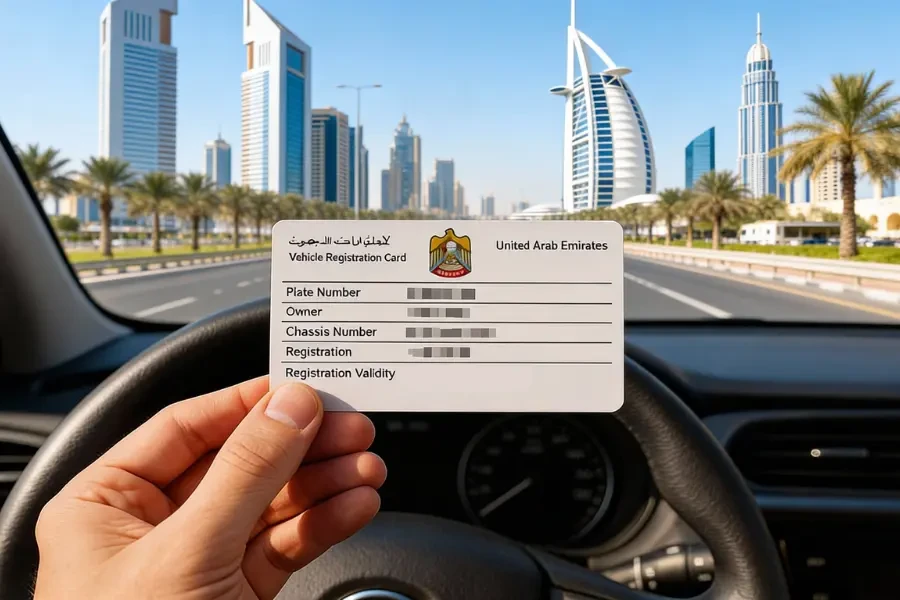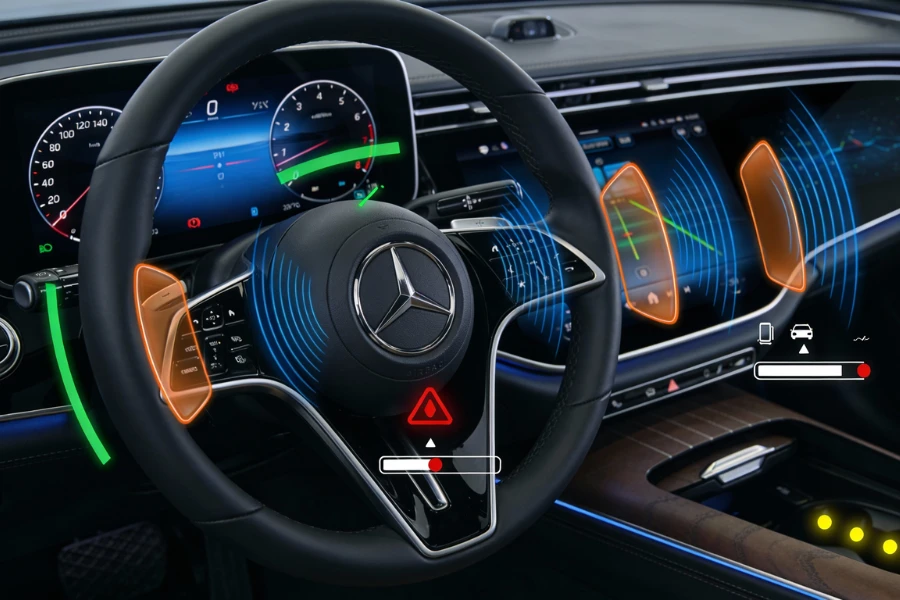Driving in the UAE: Valid Licenses, Rules for Tourists and Residents (2025 Updated)
The United Arab Emirates (UAE) offers a modern and expansive road network, making driving an appealing option for both residents and tourists. However, it's essential to understand the licensing requirements and traffic regulations to ensure a safe and legal driving experience. This comprehensive guide provides updated information for 2025 on valid driving licenses, rules for tourists and residents, and the process of obtaining or converting a driving license in the UAE.
Minimum Age Requirements for Driving in the UAE
As of March 29, 2025, the UAE has updated its minimum age requirements for obtaining a driving license:
-
18 years for cars and light vehicles
These changes aim to align with international standards and enhance road safety.

Driving in the UAE for Tourists
Accepted Foreign Licenses
Tourists can drive in the UAE using their home country's driving license if it's from one of the approved countries. Some of these countries include:
- United States
- Europe
- Australia
- Canada
- Japan
- South Korea
- GCC countries
Tourists from these countries do not require an International Driving Permit (IDP) to drive in the UAE.
International Driving Permit (IDP)
If your country is not on the approved list, you must obtain an IDP in addition to carrying your valid home country license. The IDP serves as a translation of your license and is recognized in the UAE.

Rental Car Requirements
To rent a car in the UAE, tourists typically need:
-
A valid driving license (and IDP if required)
-
A passport copy
-
A valid credit card
-
Minimum age of 21 years (may vary by rental company)
Driving in the UAE for Residents
Obtaining a UAE Driving License
Residents must hold a UAE driving license to drive legally. The process involves:
-
Opening a Traffic File: Submit necessary documents, including passport, residence visa, Emirates ID, and photographs.
-
Eye Test: Conducted at an RTA-approved center.
-
Driving Lessons: Enroll in a registered driving institute.
-
Theory Test: Assess knowledge of traffic rules.
-
Practical Test: Demonstrate driving skills.
-
License Issuance: Upon passing all tests.

License Conversion
Residents holding valid licenses from certain countries can convert their licenses without undergoing tests. Eligible countries include:
-
United States
-
United Kingdom
-
Germany
-
France
-
Australia
-
Canada
-
GCC countries
The conversion process requires submitting the original license, a legal translation (if not in Arabic), Emirates ID, and an eye test report.

License Validity and Renewal
-
UAE and GCC Nationals: Licenses are valid for 10 years.
-
Residents: Licenses are valid for 5 years.
Renewal requires clearing any traffic fines and can be done online or at RTA centers. A late renewal fee of AED 10 per month applies after a one-month grace period.
Traffic Rules and Regulations
Speed Limits
-
Urban Areas: 60–80 km/h
-
Main Roads: 100–120 km/h
-
Residential Zones: 40–60 km/h
Speed limits are strictly enforced with radar cameras, and violations result in hefty fines.

Seat Belts and Mobile Phones
All passengers must wear seat belts. Using a mobile phone while driving without a hands-free system is prohibited and punishable by fines and black points on the license.
Driving Under the Influence
The UAE has zero tolerance for driving under the influence of alcohol or drugs. Offenders face severe penalties, including fines, imprisonment, and license suspension.
Driving in the UAE offers convenience and flexibility, but it's crucial to adhere to the country's licensing requirements and traffic laws. Tourists should verify if their home country's license is accepted or if an IDP is necessary. Residents must obtain a UAE driving license, either through testing or conversion, depending on their home country's eligibility. Staying informed about the latest regulations ensures a safe and lawful driving experience in the UAE.







